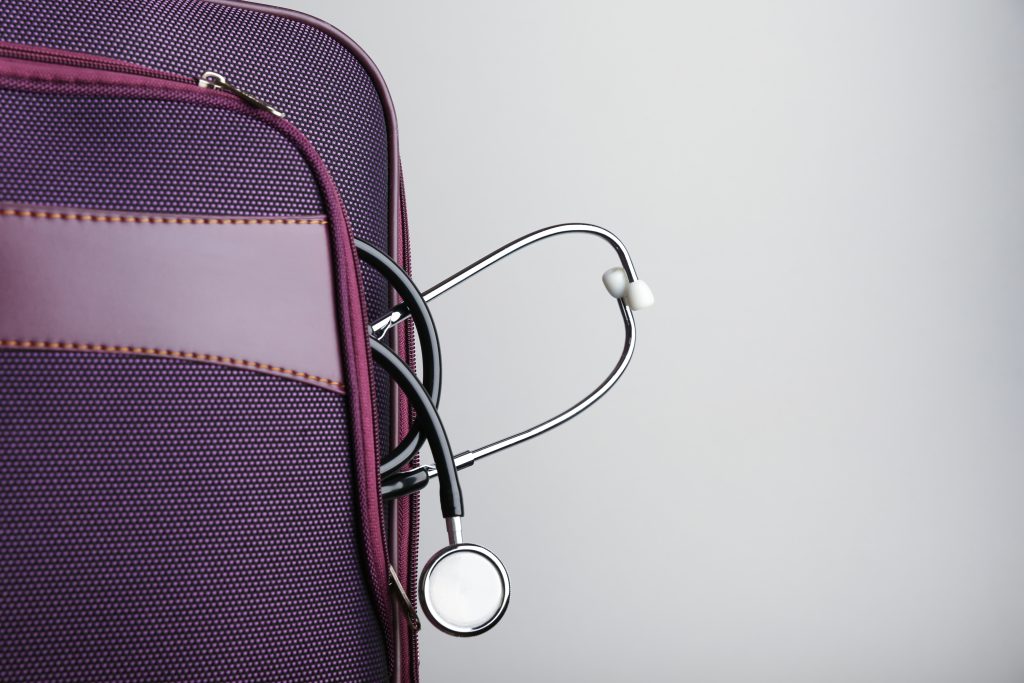With the arrival of summer and the start of the holiday season, many people decide to travel abroad to enjoy a few days of rest. Beyond booking flights, accommodation or planning sightseeing routes, it is crucial to consider certain medical recommendations before, during and after the trip, especially when visiting countries with different health or climate conditions compared to our own.
Specialists from the Internal Medicine Department at HM Santísima Trinidad recommend attending a medical consultation prior to travelling to assess general health status, particularly in individuals with chronic conditions such as diabetes, high blood pressure or respiratory problems. They also emphasise the importance of updating vaccination schedules and checking international vaccines that may be required. Depending on the destination country, vaccines such as yellow fever, hepatitis A and B, typhoid fever or tetanus may be mandatory or highly recommended.
Another important aspect to consider is purchasing international medical insurance, especially when travelling outside the European Union, as well as becoming informed about the healthcare conditions and potential risks of the destination country. It is also advisable to prepare a basic first-aid kit including commonly used medicines: painkillers, anti-diarrhoeals, antihistamines, insect repellent, a thermometer, sunscreen and products for minor injuries such as gauze, plasters or antiseptic.
The internists at HM Santísima Trinidad highlight that once at the destination, it is crucial to follow basic precautions to avoid infections or food poisoning. For instance, avoid drinking tap water in regions where it is not guaranteed to be safe. They recommend always drinking bottled water, avoiding ice in drinks, and eating only thoroughly cooked foods. It is also important to take extra precautions against mosquito bites, as in certain regions mosquitoes can transmit diseases such as Zika, malaria or yellow fever. To reduce this risk, the use of repellents is advised, along with wearing long-sleeved clothing, sleeping under mosquito nets, and avoiding strong perfumes.
As for general recommendations, the Internal Medicine specialists insist, among other preventive measures, on the importance of staying properly hydrated, avoiding prolonged sun exposure during peak radiation hours, and using sunscreen or sunglasses.

